Loop protesters stand in solidarity with farmer demonstrations in India
January 27, 2021
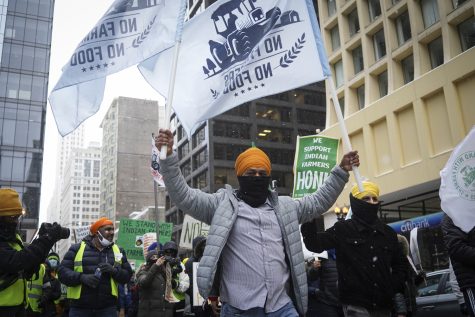
Thick, wet snow covered the colorful turbans and green and yellow banners of Southeast Asians living in Chicago who chanted “No farmers, no food” during a demonstration in the Loop.
The same day farmers in India rode into New Delhi on Indian Republic Day, protesters gathered in the Loop Tuesday, Jan. 26. Amid freezing temperatures, they expressed their solidarity with Indian farmers who are angered by “three contentious bills that will change the way India’s farmers do business,” according to the BBC.
The agricultural laws were passed by the Indian government last September and have caused disruption within the country’s parliament, with protests taking place outside of New Delhi for months. The bills allow private companies to buy produce directly from farmers, causing concern about the possibility of big corporations eventually taking over small farms.
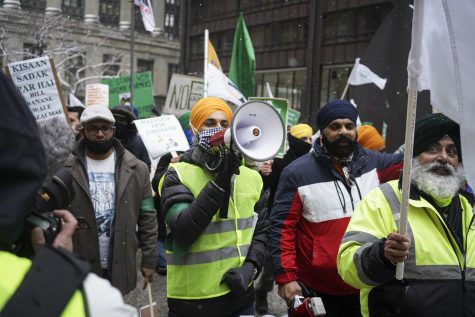
Protesters in Chicago gathered outside of the Daley Center for the Chicago Solidarity Protest for Farmers in India. The demonstrators, organized by the group Chicago Stands With Farmers, came together to provide moral support for the protesters in India.
“Many of the people here have family that are impacted directly by this,” said Parminder Singh Mann, one of the speakers at the event. “I’m first generation, [and] there are people here who are recent immigrants. They actually have family members that are at the protest site.”
Some Indian farmers fear reduced government protections, including guaranteed minimum prices for certain crops, could leave farmers “at the mercy of greedy corporations,” according to The New York Times.
In New Delhi, on the same day as the Loop protest, tens of thousands of farmers showed up at India’s capital on tractors with Indian flags, “overshadowing a traditional military parade on a national holiday,” according to NPR.
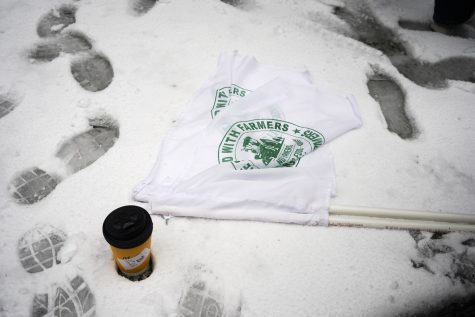
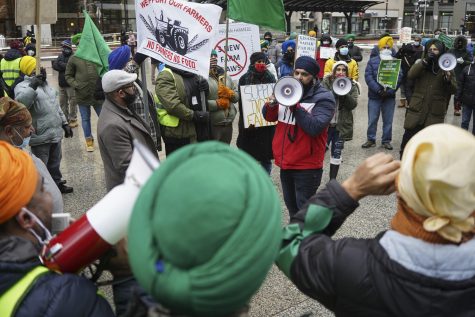
The local gathering Tuesday was the second of its kind organized by Chicago Stands With Farmers, and Mann said the organization will support Indian farmers for as long as the protests in India continue.
One of the primary goals of the event was to raise awareness about the protests in India. Another goal was to get local politicians to voice support for the efforts in India. Ald. Rossana Rodriguez Sanchez (33rd Ward) expressed support for the protesters via a statement read by organizers at the demonstration.
A majority of the crowd was Sikh, a religion that is common in the Punjab region where the striking farmers come from, according to Harvir Singh, a key organizer of the demonstration. The event began with a traditional Sikh prayer to bless those demonstrating.
According to Mann, most of the Punjabi community is closely tied to agriculture, and the industry employs 60% of the Indian population. Many of the protesters at the demonstration voiced concern about the possibility of family members losing land as a result of the bills.
“When there are these mass movements and the possibility of state repression and violence taking place due to protests, the community back [in India] looks upon the diaspora, those living abroad, to make the world aware of what’s going on,” Mann said.
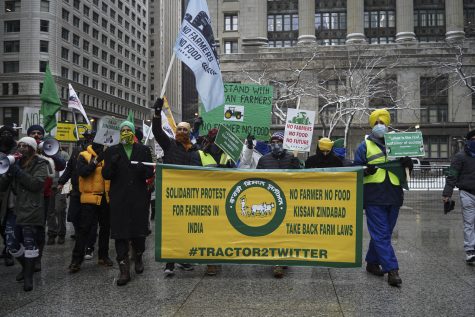
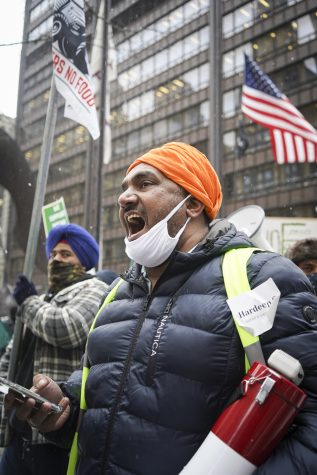
Despite gathering during the first major snow storm of the year, the event was attended by around 200 members of the Chicago Southeast Asian and the Midwest Southeast Asian communities, Singh said.
Several community members delivered speeches in English, Punjabi, Hindi and Urdu, including Mann, Junaid Ahmed and Pushkar Sharma.
Protesters at the event wore green armbands and flew green banners, the color used by the farmers protesting in India. Banners at the event read “No Farmers, No Food, No Future.”
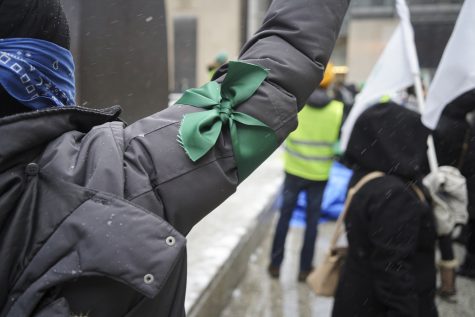
Mann said the protests in India and Chicago have remained peaceful, although it was reported that “many protesters were injured” at the protest in New Delhi, according to The New York Times.
“As we bring this to the global stage, then it puts a pressure on India and its government that the world is watching,” Mann said.







